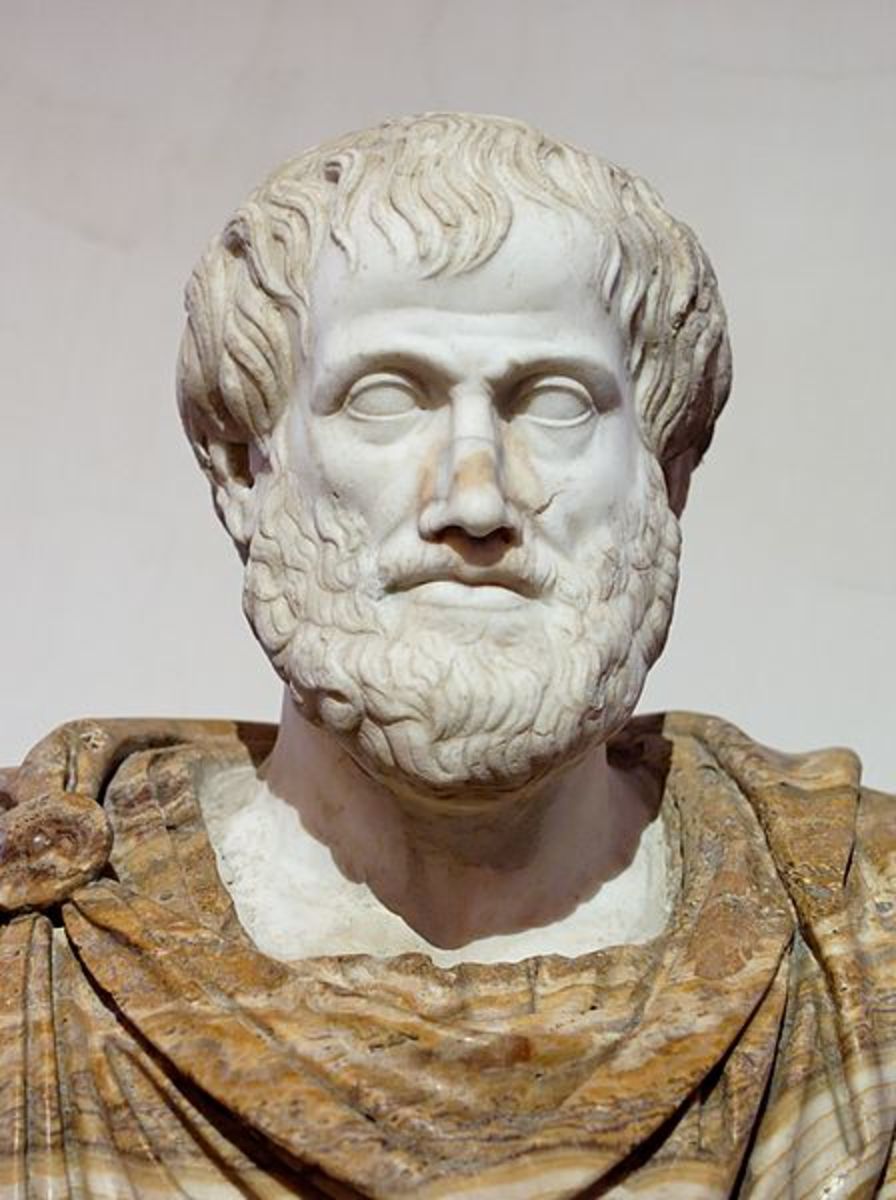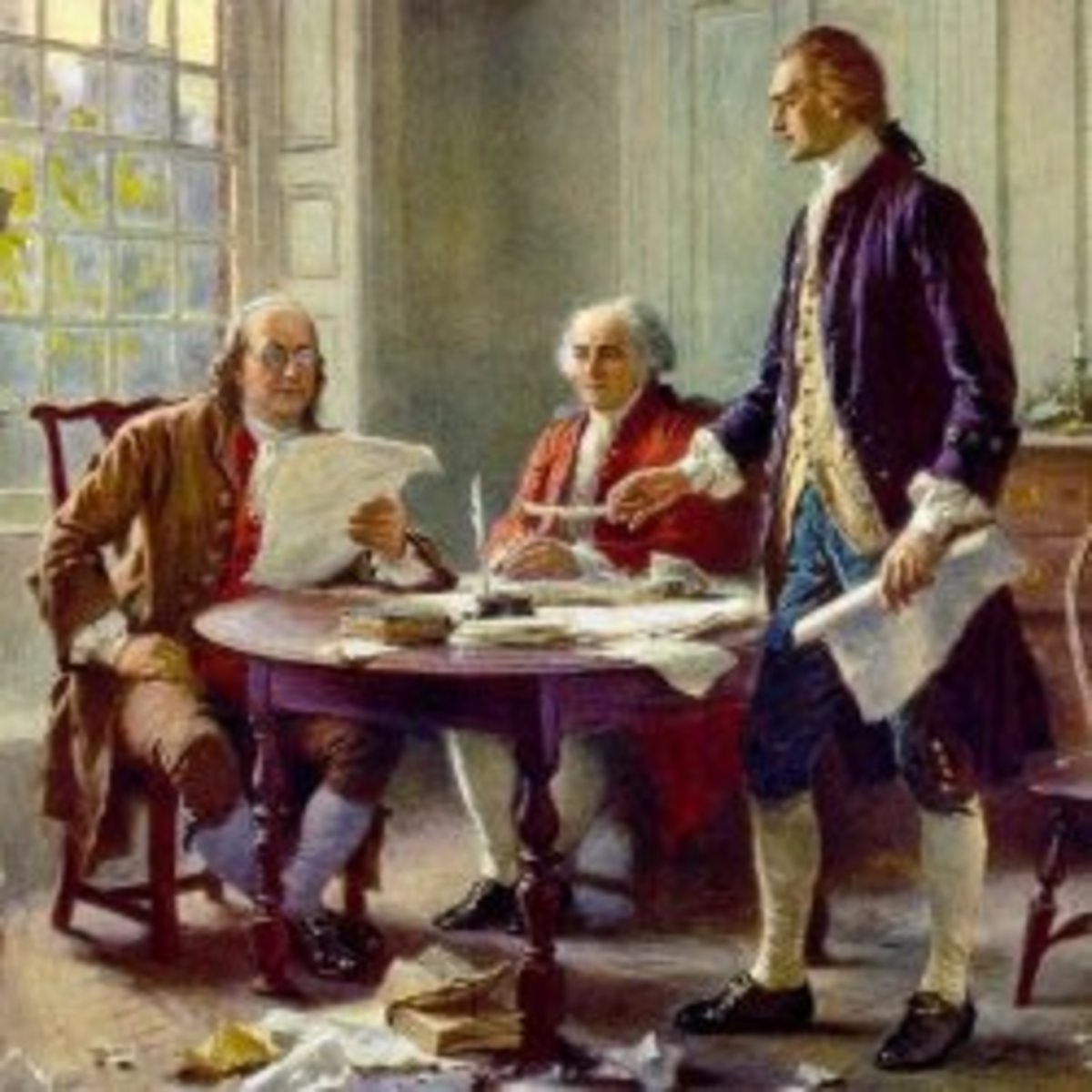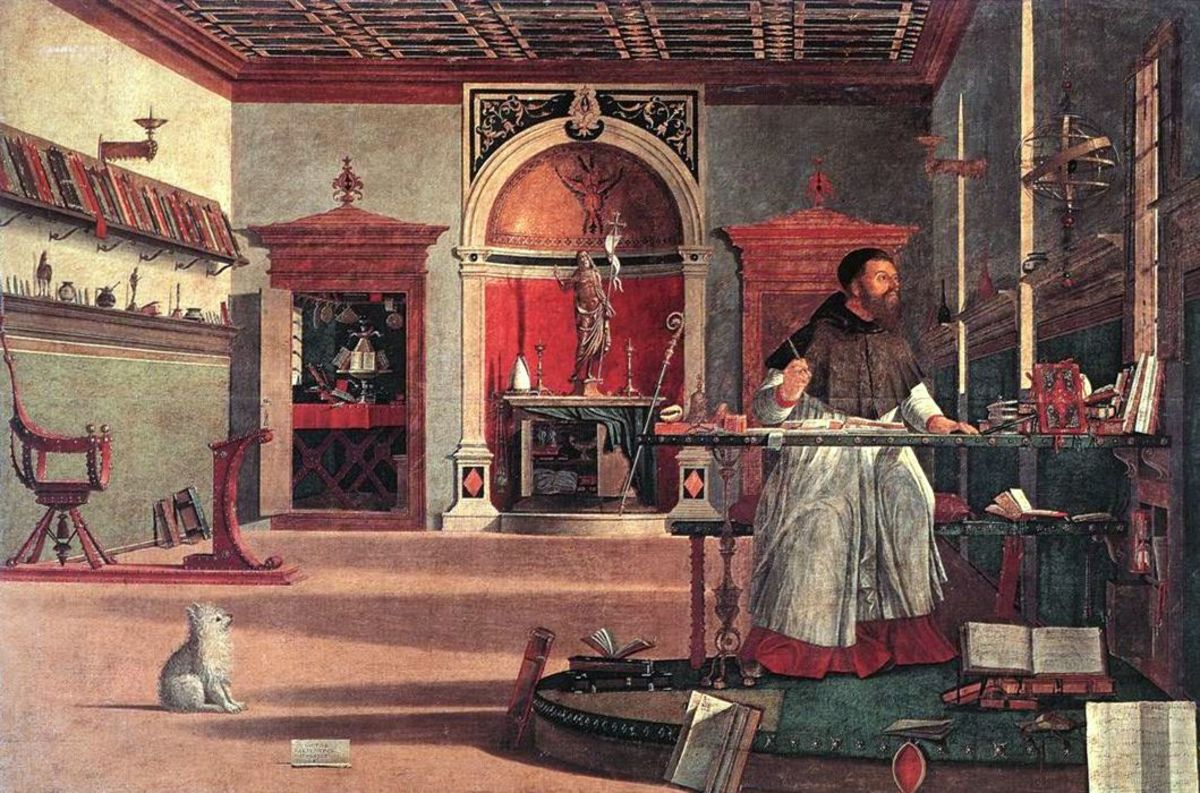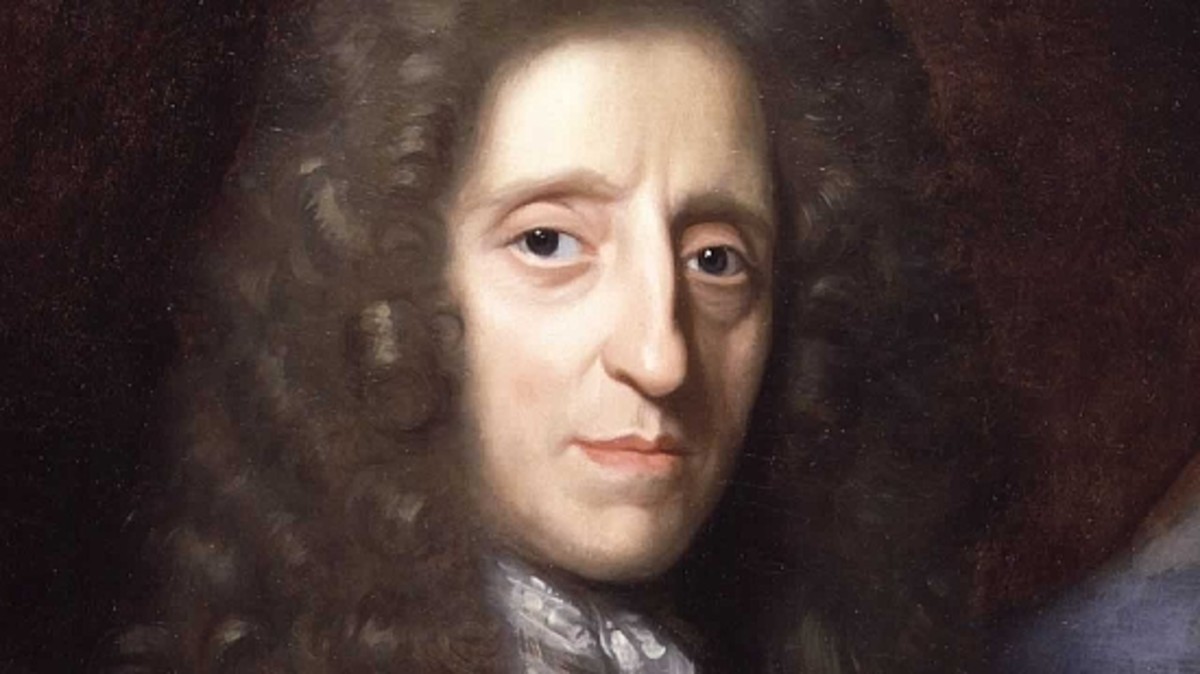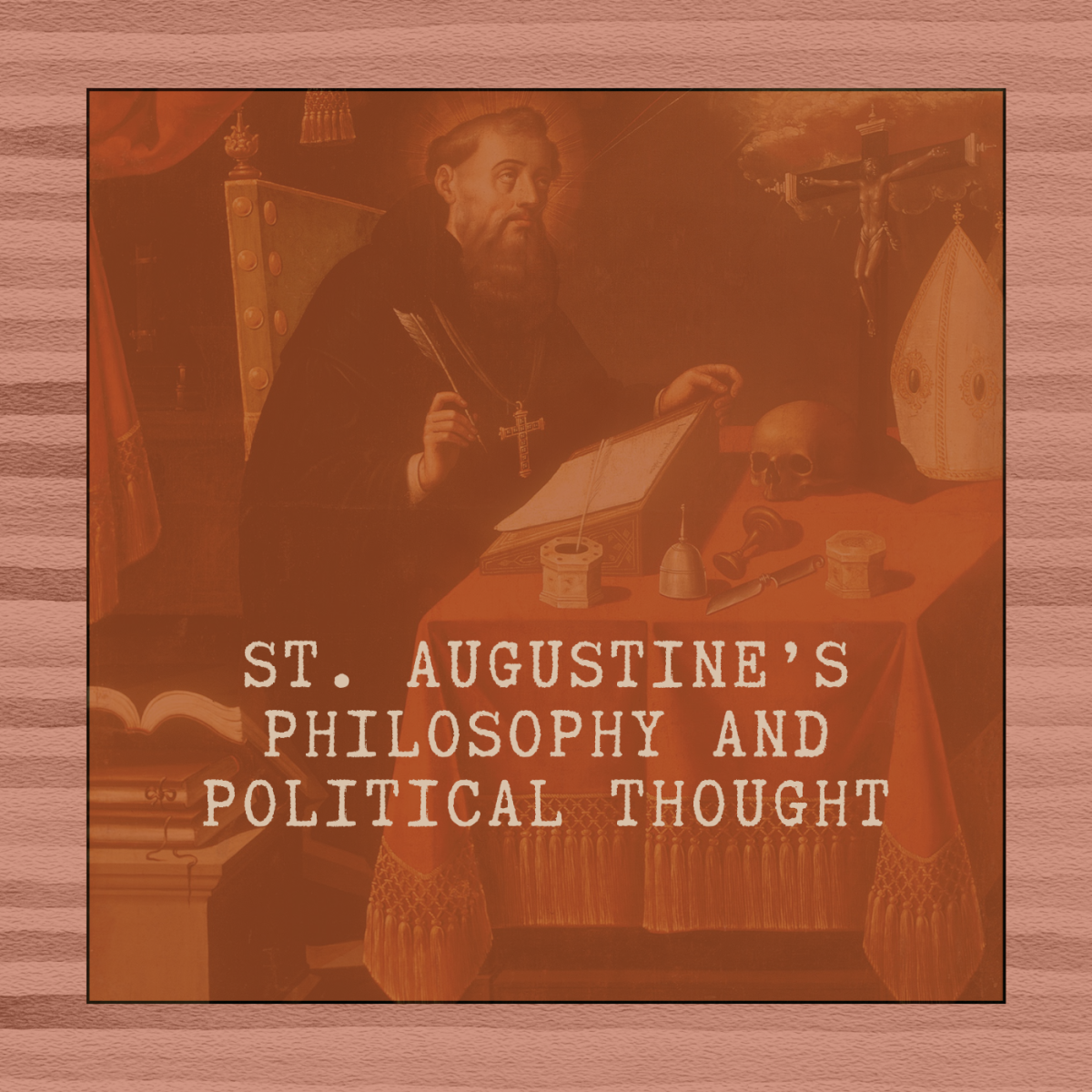Unbelief and the Politics of Fear
When the English philosopher, Thomas Hobbes' mother was expecting him, she gave birth to him prematurely upon hearing that the Spanish were sailing their “Invincible Armada” to bring the English isle under Spanish rule and under popery. Hobbes later commented in his autobiography that on that day of his birth in 1588, his mother "gave birth to fear and myself together."
In his political treatise, Leviathan, Hobbes gives us a state predicated on fear. According to Hobbes, man leaves the state of nature, a “dog-eat-dog world” where life is "solitary, poor, nasty, brutish, and short." They leave it cowering for their lives, only to agree to be ruled by a beast, a leviathan to protect them. Of course, this state may lack freedom, but at least man is secure. In his philosophy, Hobbes grounds sovereignty, not in God, but in the mass of the people. But Hobbes’ “people” are only valuable en masse. By themselves, men are timid puppies, cowering and whimpering. There is no nobility, no dignity. Survival is all.
About a century earlier, Niccolo Machiavelli (1469-1527) had fears of his own. Machiavelli, a minor bureaucrat in Florence, feared the instability that came with the lack of unity among the city-states on the Italian Peninsula. Machiavelli's fear of the instability was great enough that, when he penned his advice to Lorenzo de Medici on how to be an able ruler, he advised Lorenzo to be an evil prince when necessary, imposing order with deceit and trickery. His model prince was Cesare Borgia, called the “black prince," a ruler renowned for treachery and other immoralities.
Machiavelli's work, The Prince, was a watershed work in modern political theory. Machiavelli's prince, like Hobbes’ king, was a beast who ruled to bring order to the cowering masses by whatever means necessary. Men like Hobbes and Machiavelli were unbelieving men; men who had rejected God earlier and embraced rule by the fist rather than the rule by law. Hobbes and Machiavelli gave us a theory of government to be embraced by fearful men who rule by fear.
Is this important to us today? You bet. A nation that is merely a mass of fearful people is a pitiful thing. In the end, it’s not worth defending. We need a political philosophy that will help us recognize the value of fear so that we prepare for the encroaching storm, yet not allow fear to so overpower us so that we surrender all for the sake of survival.
From Hobbes and Machiavelli, we get a political theory where the foundation of the state and society is fear. All of our values, including order, freedom, and equality are inherently founded on fear. The essence of the state is a gun pointed at our head. What I would like to suggest in this essay is that it is a lack of belief in God that drives this cringing and cowering default view and that this view is both undesirable and is not consonant with the character of the American founding.
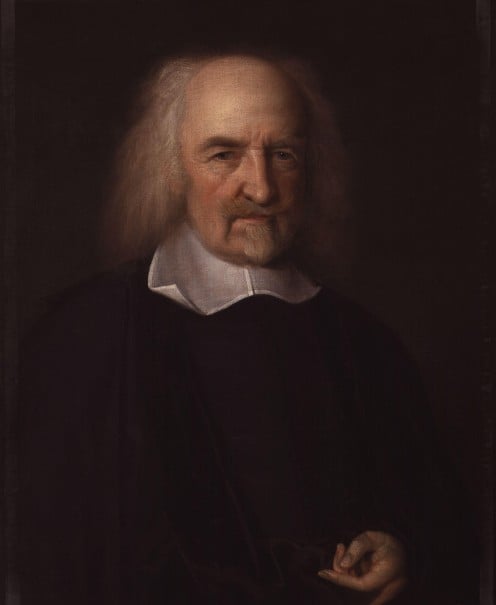
Fear in its Place
Now, fear is an important element of our make up. It keeps us alive. Imagine if you didn't fear the hot stove, or the oncoming train, or the narrow precipice. Fear should act as a guide in our lives, but we can’t let it control us. Yes, we fear the hot stove, but we still use it. We fear the rapidly-moving train but trains are valuable and we learn to stay out of their way, all the while using them for our benefit. Today, there is considerable uncertainty, especially economically. If we allow fear to drive us, if we must be safe above all else, then freedom will be discarded for security. And when security is all, then tyranny is our future.
The problem today is that unbelieving philosophies like those of Hobbes and Machiavelli are likely to place fear in the driver seat. Why? For the unbeliever, this life is everything. He must hold on to it and must do whatever is necessary to embrace it. He must pay any price to hold on to this life. It follows that there is nothing really worth dying for.
A Christian political philosophy, however, need not take that approach. For the Christian, some values such as love, duty, honor, and freedom are values worth dying for. For the atheists these values are just fantasies. The positivist tells the believer that these values are mere sentiments, that they are not real because they came to us via history, but not by the path of science. But America's founding fathers knew better and so does the Christian today. He knows that there is more to this life than....this life.
In this time of great fear, be it economic, international, or environmental, we need a belief system that will help us keep balance. Unbelieving philosophies, be they atheism, humanism, nihilism, or postmodernism will not carry the day. A Christian political philosophy recognizes the value of fear, but a fear that's in the back seat, not the driver’s seat. The predilection for survival must be put aside from time to time so that we can see what’s most important. The Christian desires a secure state, not just because he wants to survive, but because he honors God when he protects that which has been entrusted to him be that his country, his rights, his family, or his heritage.
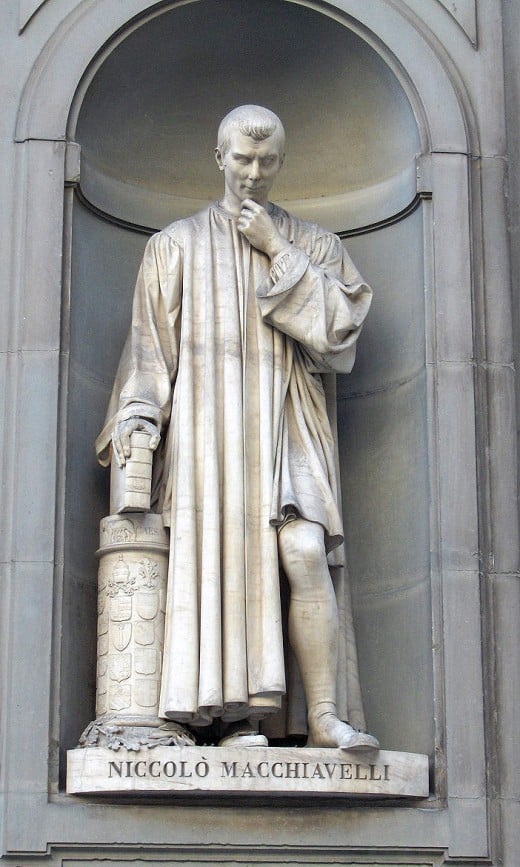
Our Lives, Fortunes, and Sacred Honor
America, and the men that founded it, stand in contrast to the cowering philosophy presented by Machiavelli and Hobbes. Many of the men that came here initially, like John Winthrop or Roger Williams put much at risk in order to come to America in those beginning years. Later, when the men were penning their names to the Declaration of Independence, they knew that they were risking a lot to achieve independence. Ben Franklin was certainly aware of it when he apparently said, "We must, indeed, all hang together or, most assuredly, we shall all hang separately." [1]
The final words of the Declaration of Independence provide a good mix of a spiritual philosophy coupled with political ambition:
And for the support of this Declaration, with a firm reliance on the protection of divine Providence, we mutually pledge to each other our Lives, our Fortunes and our sacred Honor.
The Declaration was for "independence," not slavery or "interdependence." The founders relied on God, and they underwent a calculated risk in order achieve independence. Today, we don't need to achieve independence; the nation's founders already crossed that bridge for us. What we must do is not settle for mere security or dependency; rather, we must maintain our freedom and be willing to undergo some risk in order to keep it.
[1] The quote by Franklin is an attribution.
© 2009 William R Bowen Jr


